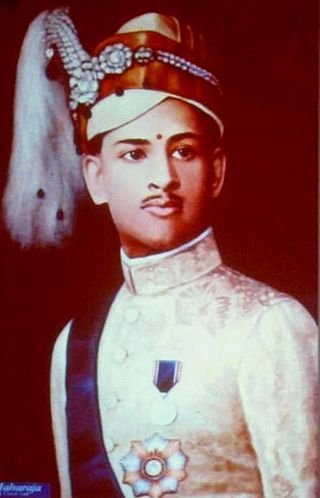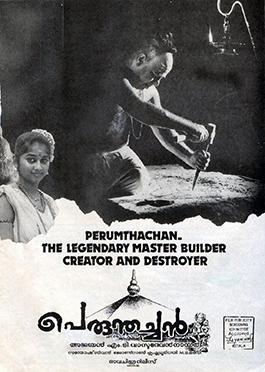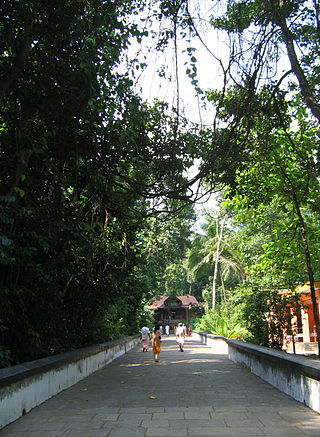Related Research Articles

Malayalam is a Dravidian language spoken in the Indian state of Kerala and the union territories of Lakshadweep and Puducherry by the Malayali people. It is one of 22 scheduled languages of India. Malayalam was designated a "Classical Language of India" in 2013. Malayalam has official language status in Kerala, Lakshadweep and Puducherry (Mahé), and is also the primary spoken language of Lakshadweep and is spoken by 35 million people in India. Malayalam is also spoken by linguistic minorities in the neighbouring states; with a significant number of speakers in the Kodagu and Dakshina Kannada districts of Karnataka, and Kanyakumari, Coimbatore and Nilgiris district of Tamil Nadu. It is also spoken by the Malayali Diaspora worldwide, especially in the Persian Gulf countries, due to the large populations of Malayali expatriates there. They are a significant population in each city in India including Mumbai, Bengaluru, Chennai, Delhi, Hyderabad etc.

The Communist Party of India (Marxist) (abbreviated as CPI(M)) is a communist political party in India. It is the largest communist party in India in terms of membership and electoral seats, and one of the national parties of India. The party was founded through a splitting from the Communist Party of India in 1964 and it quickly became the dominant faction.

The Communist Party of India (CPI) is the oldest communist party in India. The CPI was founded in modern-day Kanpur on 26 December 1925.

Sree Padmanabhadasa Sree Chithira Thirunal Balarama Varma, popularly known as Sree Chithira Thirunal, was the last ruling Maharaja of the Indian princely state of Travancore, in southern India until 1949 and later the Titular Maharajah of Travancore until 1991. His reign is known for several notable reforms that have indelible impact on the society and culture of Kerala.

Ayillyath Kuttiari Gopalan Nambiar, popularly known as A. K. Gopalan or AKG, was an Indian communist politician. He was one of 16 Communist Party of India members elected to the first Lok Sabha in 1952. Later he became one of the founding members of the Communist Party of India (Marxist).
Namasudra, earlier known as Chandal, is an Avarna Bengali Hindu community originating from eastern and central Bengal. The term Chandal or Chandala is usually considered as a slur. They were traditionally engaged in fishing and as boatmen, and later in cultivation. They lived outside the four-tier ritual varna system and thus were outcastes.

Malappuram is a city and the headquarters of the Malappuram district in Kerala, India. It is the 4th largest urban agglomeration in Kerala and the 20th largest in India and a city in the Indian state of Kerala, spread over an area of 158.20 km2 (61.08 sq mi) including the surrounding suburban areas. The first municipality in the district formed in 1970, Malappuram serves as the administrative headquarters of Malappuram district. Divided into 40 electoral wards, the city has a population density of 4,800 per square kilometre. According to the 2011 census, the Malappuram metropolitan area is the fourth largest urban agglomeration in Kerala after Kochi, Calicut, and Thrissur urban areas and the 20th largest in India with a total population of 3 million. It is the fastest growing city in the world with a 44.1% urban growth between 2015 and 2020 as per the survey conducted by Economist Intelligence Unit (EIU) based on the urban area growth during January 2020. Malappuram is situated 54 km southeast of Calicut and 90 km northwest of Palakkad. It is the first Indian municipal body to provide free Wi-Fi connectivity to its entire residents. Malappuram is also the first Indian municipal body to achieve the International Organization for Standardization certificate. It is also the first complaint-free municipality in the state.
Gaud Saraswat Brahmins (GSB), also known as Shenvis are a Hindu community of contested caste status and identity. They primarily speak Konkani and its various dialects as their mother tongue.

The Nambudiri, also transliterated as Nampoothiri, Nambūdiri, Namboodiri, Namboothiri and Nampūtiri, are a Malayali Brahmin caste, native to what is now the state of Kerala, India, where they constituted part of the traditional feudal elite. Headed by the Azhvanchery Thamprakkal Samrāṭ, the Nambudiris were the highest ranking caste in Kerala. They owned a large portion of the land in the region of Malabar, and together with the Nair monarchs, the Nambudiris formed the landed aristocracy known as the Jenmimar, until the Kerala Land Reforms starting in 1957.

Vellithuruthi Thazhathu Karutha Patteri Raman Bhattathiripad (1896–1982), also known as V. T. Bhattathiripad, was an Indian social reformer, dramatist and an Indian independence activist. He was best known for his contributions in the reformation of the casteism and conservatism that existed in the Namboothiri community. He wrote a number of books which include a play, Adukkalayail Ninnu Arangathekku and his autobiography, Kanneerum Kinavum and many critics consider them as notable works in Malayalam literature. Kerala Sahitya Akademi honoured him with distinguished fellowship in 1976.

Lalithambika Antharjanam was an Indian author and social reformer best known for her literary works in the Malayalam language. She was influenced by the Indian independence movement and social reform movements among the Nambuthiri community and her writing reflects a sensitivity to the women's role in society, in the family and as an individual.
Mullamangalath Raman Bhattathiripad (1908–2001), also known as M. R. Bhattathiripad, was an Indian social reformer, cultural leader and a Malayalam writer.

Perumthachan is a 1991 Indian Malayalam-language period drama film directed by Ajayan and written by M. T. Vasudevan Nair. It is based on Perumthachan of the Parayi Petta Panthirukulam, a legend of the Kerala folklore. The problems caused by the generation gap are explored through the relationship between a skilled carpenter and his tradition-breaking son. The film won the National Film Award for Best First Film of a Director and Filmfare Award for Best Film - Malayalam. It was nominated for the Golden Leopard Award and is now considered as a classic in Malayalam cinema. The film marks the debut of Prashanth in Malayalam cinema.

The Singh Sabhā Movement, also known as the Singh Sabhā Lehar, was a Sikh movement that began in Punjab in the 1870s in reaction to the proselytising activities of Christians, Hindu reform movements and Muslims. The movement was founded in an era when the Sikh Empire had been dissolved and annexed by the British, the Khalsa had lost its prestige, and mainstream Sikhs were rapidly converting to other religions. The movement's aims were to "propagate the true Sikh religion and restore Sikhism to its pristine glory; to write and distribute historical and religious books of Sikhs; and to propagate Gurmukhi Punjabi through magazines and media." The movement sought to reform Sikhism and bring back into the Sikh fold the apostates who had converted to other religions; as well as to interest the influential British officials in furthering the Sikh community. At the time of its founding, the Singh Sabha policy was to avoid criticism of other religions and political matters.

Kottiyoor Temple is a prominent Shiva temple in Kottiyoor, Kannur, Kerala, India. It was under the Kattan dynasty of Puralimala, from which the name 'Katti-yoor' originated. This name later evolved into Kottiyoor in the local dialect. Vadakkeshwaram Temple is the common name of the temple from ancient times, but some of the local people address the temple as Ikkare Kottiyoor as it is on the bank of the river close to the Kottiyoor village, to differentiate it from the shrine in the other side of the river. Thruchherumana Kshetram is also another name by which temple is known. The temple is a special category temple under Malabar Devaswom board.
Parvathi Nenmenimangalam (1911–1947) was an Indian social reformer from Kerala.
Notable works

In 1964, a major split occurred in the Communist Party of India. The split was the culmination of decades of tensions and factional infighting. When India became independent in 1947, differences arose of how to adapt to the new situation. As relations between the Nehru government and the Soviet Union improved, a faction that sought cooperation with the dominant Indian National Congress emerged within CPI. This tendency was led by S.A. Dange, whose role in the party hierarchy became increasingly controversial. When the Sino-Indian War broke out in 1962 Dange's opponents within CPI were jailed, but when they were released they sought to challenge his leadership. In 1964 the party was finally divided into two, with the left faction forming the Communist Party of India (Marxist). The split had a lot of regional variations. It also impacted other organizations, such as trade union and peasant movements. The split has been studied extensively by scholars, who have sought to analyze the various domestic and international factors involved.
References
- ↑ Staff Reporter (6 February 2012). "Women who made a difference". The Hindu. ISSN 0971-751X . Retrieved 10 August 2018.
- ↑ Calicut, Namboothiri Websites. "Antharjana Samaajam". www.namboothiri.com. Retrieved 10 August 2018.
- ↑ Reforming the Identity of Namboodiri Women (PDF).
- ↑ M.B., Smina (2014). "Paliyam Satyagraha: A Struggle for Public Domain" (PDF). VISTAS. 3: 65–69. Archived from the original (PDF) on 11 August 2018. Retrieved 10 August 2018.
- 1 2 jdevika (29 August 2020). "Remembering Arya Pallom: Devaki Nilayangode". Swatantryavaadini. Retrieved 28 May 2021.